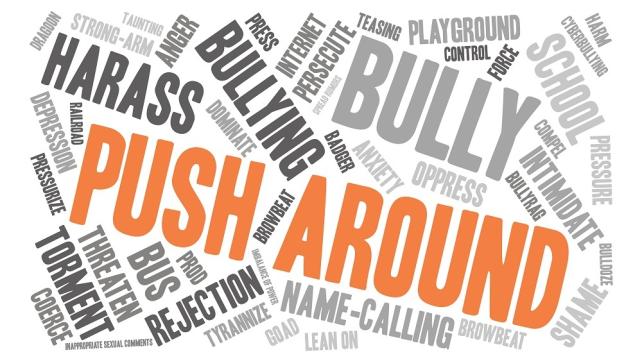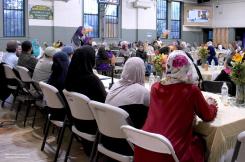
In the Quran, Allah commands humankind:
“Allah has the Most Beautiful Names. So, call upon Him by them, and keep away from those who abuse His Names. They will be punished for what they used to do.”
(Surah Al-Araf, 7:180)
Names carry deep significance in Islam, and the most sublime of names belong to the Creator, Allah. It was He who taught Adam the names of all things (Surah Al-Baqarah, 2:31), and through this knowledge, raised his status above the angels and the jinn. Prophet Muhammad, peace and blessings be upon him, stressed the importance of selecting virtuous names. Islamic tradition highly values the choice of good names to the extent that he would change unsuitable names for children and new converts no matter their age. A pleasing name exerts a spiritual impact, leaving a positive imprint on an individual's character while a negative name can have the opposite effect. Subsequently, addressing someone with a derogatory name is considered a serious transgression in Islam.
The Prohibitions related to Name-Calling
Name-calling is frequently regarded lightly, often used in jest or humor. The youth are especially prone to fall into the habit of calling their friends offensive nicknames, leading to desensitization over time. It is crucial to address this negative tendency early on by reinforcing the significance of names in Islam and by reminding them about the firm prohibitions against derogatory language and insults aimed at fellow Muslims and others.
The Prophet Muhammad, peace and blessings be upon him, said:
“The believer does not insult others, he does not curse others, he is not vulgar, and he is not shameless.”
(Sunan al-Tirmidhi)
This hadith summarizes the core values of respect, dignity, and kindness that should characterize the conduct of every Muslim, young and old. Islam not only prohibits abusive language but also encourages believers to embody a higher standard of behavior characterized by God-consciousness, empathy, patience, and respect. Thus, addressing someone with derogatory names not only contradicts the principles of Islamic morality but also stands in stark contrast to the compassionate and excellent example set by the Prophet Muhammad, peace and blessings be upon him. More importantly, vile speech and name-calling goes against the spirit of peace and brotherhood prescribed by Allah, may He be glorified and exalted. He said:
“The believers are but one brotherhood, so make peace between your brothers. And be mindful of Allah so you may be shown mercy.”
(Surah Al-Hujarat, 49:10)
In the following verse, Allah admonishes those who mock or humiliate others, including those who insult by way of name-calling. Allah says:
“O believers! Do not let some ˹men˺ ridicule others, they may be better than them, nor let ˹some˺ women ridicule other women, they may be better than them. Do not defame one another, nor call each other by offensive nicknames. How evil it is to act rebelliously after having faith! And whoever does not repent, it is they who are the ˹true˺ wrongdoers.”
(Surah Al-Hujarat, 49:11)
Ibn Kathir said regarding these verses,
“Allah the Exalted forbids scoffing at people, which implies humiliating and belittling them. In the Sahih, it is recorded that the Messenger of Allah, peace and blessings be upon him, said:
‘Arrogance is refusing the truth and belittling people. (In another version) and despising people.’ It is forbidden to scoff at and belittle people, for the injured party could be more honored and dearer to Allah, the Exalted, than those who ridicule and belittle them… This prohibition is for men and women. The statement of Allah the Exalted, ‘Nor defame yourselves,’ forbids defaming each other. He among men who is a slanderer, and a backbiter, is cursed and condemned as Allah states, ‘Woe to every Humazah, Lumazah (backbiter, slanderer)’ (104:1). Hamz is defamation by action, while Lamz is by words…”
(Tafsir Ibn Kathir)
One might argue that name-calling is a common practice, and even if they refrain from doing it themselves, they witness others engaging in it regularly. In certain situations, individuals who have been subjected to name-calling may feel compelled to respond in kind as a form of self-defense. Nevertheless, it's important to emphasize that such actions are not justified. The evil of name-calling is so significant in Islam that Allah even revealed a verse defending one of its victims among the companions in the Quran. Abu Jabirah ibn al-Dahhak reported:
“A man used to have two or three names by which he was called. Perhaps he hated one of them, so Allah revealed the verse, ‘Do not insult each other with offensive nicknames.’” (Surah Al-Hujarat, 49:11)
(Sunan al-Tirmidhi)
In fact, most of Surah Al-Hujurat, deals with proper Islamic conduct when it comes to dealing with fellow human beings. The first section of verses underscores the importance of respecting the Prophet Muhammad, peace and blessings be upon him, and other believers. Subsequent verses emphasize Islamic moral conduct and the equality of all human beings, tracing their origin to a common male and female. The final verses outline the attributes that define true believers, those who are sincere and strive for the sake of Allah. Aside from calling others by offensive nicknames, some of the other deeds that must be avoided according to the commandments in the Surah are:
- Impulsivity
- Rude behavior (raising the voice)
- Gossip
- Disbelief
- Rebelliousness
- Disobedience
- Fighting fellow Muslims
- Ridiculing others
- Defaming
- Being suspicious of others in order to find fault in them
- Backbiting
- Arrogance
Read more about Surah Hujurat in this article on maintaining Muslim unity: 10 things you can do to develop a culture of Muslim unity | SoundVision.com.
Bad Nicknames
According to scholars, calling people with offensive nicknames, which entails referring to someone by a name they hate, is not allowed in Islam.1 This is the case no matter the person’s background or religion. The Prophet, peace and blessings be upon him, was so thoughtful and compassionate that he refused to even allow someone to insult a dead disbeliever. Sa’id ibn Zayd reported:
“The Messenger of Allah, peace and blessings be upon him, said, ‘Do not harm a Muslim by insulting a deceased unbelieving relative.’”
(Al-Sunan al-Kubra lil-Bayhaqi)
Similarly, Ibn Umar reported:
“The Messenger of Allah, peace and blessings be upon him, said, ‘Mention what is good about your dead, and refrain from speaking about their evil.’”
(Sunan al-Tirmidhi)
Aside from obviously abusive names and obscenities, there are other names that are disliked in Islam. A person should neither be named nor called by these names. According to IslamQA, here is a list of some of those makruh or disliked, names:
- Names with off-putting meanings. These are disliked because the meaning is ugly or because it will provoke others to make fun of the person. Such names also go against the teaching of the Prophet, peace and blessings of Allah be upon him, who commanded us to give beautiful names. Examples of these objectionable names include Harb (“war”), Rashash (sprinkles or drizzle), and Hiyam (a disease suffered by camels), and other names which have ugly or unpleasant meanings.
- Names with alluring or provocative meanings. This happens a lot when it comes to naming girls, where some names are given which have sexual or provocative meanings.
- Names which honor immoral people. These would include naming someone after singers and actors/actresses, etc. If they have good names, it is permissible to use those names, but it must be because of the meaning of the name and not because of the desire to imitate those people.
- Names with meanings that refer to sin. These include Sariq (thief) or Zalim (wrongdoer); or to give the names of Pharaohs or sinners, such as Firaun (Pharaoh), Haman (the name of Pharaoh’s minister), and Qarun.
- Names of animals known for undesirable characteristics. These include al-Himar (donkey), al-Kalb (dog), al-Qird (monkey), etc.
For more information, see How to Name a Child in Islam - Islam Question & Answer.
Good Nicknames
There are some nicknames that are good and acceptable, so long as a person does not find them offensive. Terms of endearment or pet names such as those given to children by their parents or those used between spouses are welcomed and even encouraged in Islam. The Prophet, peace and blessings be upon him, used to call his wives and companions by lighthearted nicknames that highlighted their good qualities or made light of an otherwise unpleasant situation. For example, one of the nicknames most beloved by Ali ibn Abi Talib, may Allah be pleased with him, was “Abu Turab,” which was given to him by the Prophet, peace and blessings be upon him. The companion, Sahl ibn Sad, may Allah be pleased with him, narrated that:
“The Prophet went to Fatimah’s house and did not find Ali at home. He said, ‘Where is your cousin?’ She said, ‘We had a [difference of opinion], he became upset and went out. He did not take his midday nap [qaylulah] here.’ The Prophet said to someone, ‘See where he is.’ He came back and said, ‘O Messenger of Allah! He is sleeping in the masjid.’ The Prophet went and he was laying there. His upper garment had fallen off from his side and some dust had come on him. The Prophet began to dust it off, saying, ‘Get up, Abu Turab! Get up, Abu Turab!” (literally translated as, father of dust).
(Sahih Bukhari and Sahih Muslim)
Some good nicknames are those given by relatives or friends to describe a person’s unique characteristics or tendencies. One of the most famous companions, Abu Huraira, is most recognized by his qunya or teknonym (nickname) denoting a father/son or father/daughter relationship. Regarding Abu Huraira’s name, the companion Abdullah ibn Rafi reported:
“I said to Abu Huraira, may Allah be pleased with him, ‘Why were you nicknamed Abu Huraira?’ Abu Huraira said, ‘I would tend to the sheep of my people, and I had a small kitten. I used to place it in a tree at night and during the day I would take it and play with it. So, they nicknamed me Abu Huraira, ‘father of the kitten.’”
(Sunan al-Tirmidhi)
Parents bestow noble names upon their children with the intention that they will embody the virtuous qualities associated with those names. Providing a sound name is one of the rights of the child upon his/her parents. This is a right that is bestowed on every human being, and thus, just as we expect to be honored with good names, so should we honor our neighbors, peers, and friends by calling them by those names they were given. We should never insult a person by labeling them a derogatory term because we would not want that for ourselves. It is not only an insult to the person being ridiculed, but also to their parents, family, and to Allah Who created them. Audhubillah, we seek refuge in Allah from falling into such foolishness.
End Notes
1 Calling people with offensive nicknames Fatwa No: 115714
Wendy Díaz is a Puerto Rican Muslim writer, award-winning poet, translator, and mother of six (ages ranging from infant to teen). She is the co-founder of Hablamos Islam, a non-profit organization that produces educational resources about Islam in Spanish (hablamosislam.org). She has written, illustrated, and published over a dozen children’s books and currently lives with her family in Maryland. Follow Wendy Díaz on social media @authorwendydiaz and @hablamosislam.








Add new comment